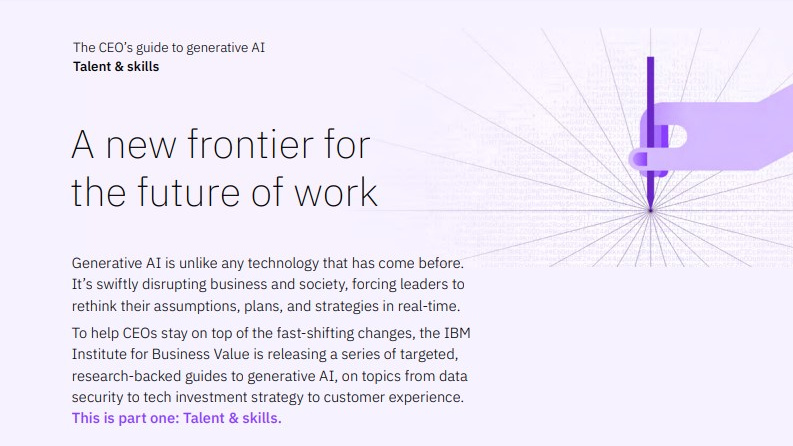China’s AI research still behind the west, but not for long
Government investment has led to a 150% increase in Chinese AI papers since 2007


Sign up today and you will receive a free copy of our Future Focus 2025 report - the leading guidance on AI, cybersecurity and other IT challenges as per 700+ senior executives
You are now subscribed
Your newsletter sign-up was successful
Significant government investment has allowed for a surge in the number of AI research papers being published in China, helping the country to close the gap between western rivals in terms of research contribution.
China is still lagging behind the US and UK in terms of significant contributions and overall development of AI in the country, according to the latest AI Index report.
However, China is catching up quickly. In the study, which covered a vast range of data points, it was found that China edged out the US in the number of published research papers for AI in 2018.
Europe still took dominance with 28% of all authored papers, however, China now sits at 25%, following a 150% increase of published papers between 2007 and 2017, led largely by its government.
In 2017, the Chinese government produced nearly 4x more AI papers than private Chinese corporations. China has also experienced a 400% increase in government-affiliated AI papers since 2007, while corporate AI papers only increased by 73% in the same period.
However, this surge in the number of papers produced has drastically reduced quality, with China scoring lower than Europe and the US based on the influence of published research.
Calculated using the "field-weighted citation impact (FWCI)", it was found that the US is the most influential region in the field scoring just under 2, with Europe scoring slightly under 1.5 and China nearly hitting 1.
Sign up today and you will receive a free copy of our Future Focus 2025 report - the leading guidance on AI, cybersecurity and other IT challenges as per 700+ senior executives
China ahead in language processing
Another of the analysed data points was the specific capabilities in which the regions excel in the field of AI. This metric showed the number of businesses that have embedded AI capabilities in at least one business unit.
China lagged behind its western counterparts in machine learning but excelled in a variety of areas including autonomous vehicles, natural language (NL) generation and NL text understanding as well as conversational interfaces and computer vision.
Europe dominated robotic process automation while North America took a slight lead in machine learning, although all three regions scored similarly for this as well as physical robotics.
However, it wasn't all good news for the west, which continues to struggle with its diversity figures. In a data set of select universities in Europe and North America, it was shown that on average 80% of AI professors in leading universities including UCL, Oxford and Stanford are male.
In an effort to control the diversity to more equal levels, action groups such as Women in Machine Learning (WiML) and AI4ALL have seen incredible success with their programs aiming to encourage women and young people of less represented backgrounds to get into AI. WiML saw a 600% increase in workshop attendance and AI4ALL saw an increase of 900% for its educational program compared to 2015.
Funding
One of the reasons for China's massive surge in AI performance in recent years is due to the government backing provided to it.
In previous years, the US relied heavily on significant investment from private firms. Companies such as Amazon invested $16.1bn into the industry and Alphabet also injected $13.6bn, while public funding was comparatively low. For example, the National Science Foundation only allocated $5.3bn in its 2019 budget.
According to CB Insights, China accounted for 48% of the world's total AI startup funding in 2017, compared to 38% for the US. Billions more in funding has come from venture capitalists in recent months too, propelling China to the forefront of the AI race.

Connor Jones has been at the forefront of global cyber security news coverage for the past few years, breaking developments on major stories such as LockBit’s ransomware attack on Royal Mail International, and many others. He has also made sporadic appearances on the ITPro Podcast discussing topics from home desk setups all the way to hacking systems using prosthetic limbs. He has a master’s degree in Magazine Journalism from the University of Sheffield, and has previously written for the likes of Red Bull Esports and UNILAD tech during his career that started in 2015.
-
 Anthropic researchers warn AI could 'inhibit skills formation' for developers
Anthropic researchers warn AI could 'inhibit skills formation' for developersNews A research paper from Anthropic suggests we need to be careful deploying AI to avoid losing critical skills
-
 CultureAI’s new partner program targets AI governance gains for resellers
CultureAI’s new partner program targets AI governance gains for resellersNews The new partner framework aims to help resellers turn AI governance gaps into scalable services revenue
-
 The CEO's guide to generative AI: A new frontier for the future of work
The CEO's guide to generative AI: A new frontier for the future of workWhitepaper Make people, not technology, central to your generative AI strategy
-
 Facebook and TUM create joint AI ethics research centre
Facebook and TUM create joint AI ethics research centreNews The social network will contribute $7.5 million to the centre over a period of five years
-
 A day in the life of a smart city dweller
A day in the life of a smart city dwellerSponsored How a truly connected life could spell the end of traffic jams, potholes and the weekly shop
-
 “Treasure trove” of 66m records suggests LinkedIn data scraping
“Treasure trove” of 66m records suggests LinkedIn data scrapingNews Users warned to guard against unsolicited job adverts via email
-
 CIO strategies for moving to a cloud-first business
CIO strategies for moving to a cloud-first businessIn-depth IT leaders describe barriers to adoption, and why on-premise will have a role for many years to come
-
 Microsoft touts recommendations for facial recognition tech legislation
Microsoft touts recommendations for facial recognition tech legislationNews Microsoft President Brad Smith said governments and businesses should work together to prevent the technology being misused
-
 AI bias must be tackled to avoid it 'unknowingly' harming people
AI bias must be tackled to avoid it 'unknowingly' harming peopleNews Experts warn we must "think about the ethical implications" of AI bias
-
 How open data is driving UK smart city innovation
How open data is driving UK smart city innovationIn-depth Transport for London and local councils explain the importance of keeping data open for everyone